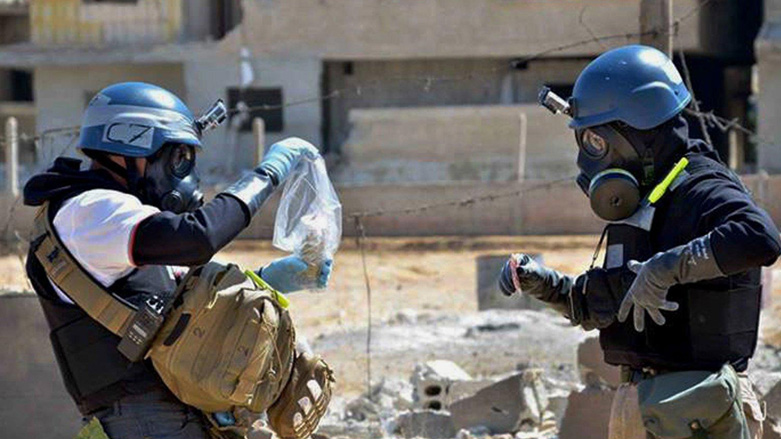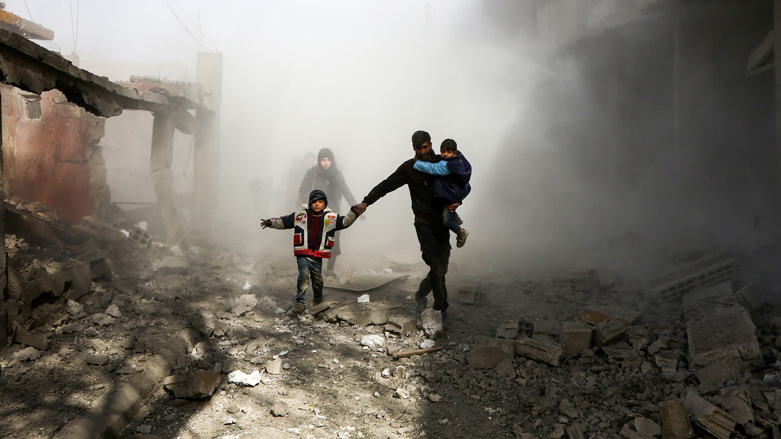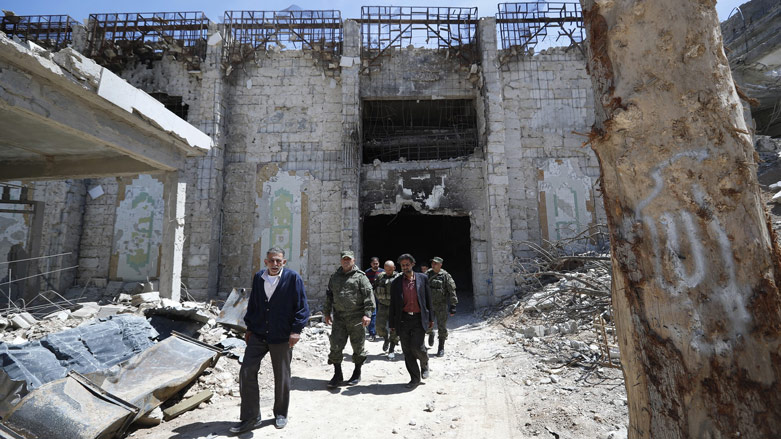Chemical inspectors finally visit site in Syria’s Douma

WASHINGTON DC (Kurdistan 24) – Two weeks after a suspected chemical attack by the Syrian regime on the Damascus suburb of Douma, inspectors from the Organization for the Prohibition of Chemical Weapons (OPCW) have finally been able to begin their work.
The OPCW issued a statement explaining that a Fact Finding Mission (FFM) team had visited one site in Douma on Saturday and collected samples there.
“The OPCW will evaluate the situation and consider future steps including another possible visit to Douma,” the organization stated.
The samples gathered by the FFM team will be sent for analysis to a laboratory linked to the OPCW.
The OPCW inspectors arrived in Damascus a week ago, but Syria prevented them from entering the affected area, claiming that it was unsafe.
A UN security team which visited two sites in the area on Wednesday, did, indeed, meet with problems. At one site, the security team encountered a large crowd and decided to withdraw. At the second site, there was small arms fire and an IED that exploded.
Since Syria controlled the territory, the US, French, and British governments all charged that Syria was behind the threats that the UN team encountered and it was using the issue of security as an excuse to postpone the work of the OPCW team.
Chemical weapons dissipate with time, so the delay may make it more difficult for the OPCW to reach any definitive conclusion. The Western powers were also concerned that Syria, and its Russian ally, were using the delay to sanitize the area.
The US and its allies have charged that Syria attacked the rebel stronghold with sarin gas and followed the initial assault with a chlorine attack, in part, to conceal the initial use of sarin.
Following the alleged attack on April 7, Russia brokered a deal between the regime and the rebels. They were evacuated, along with their families, to the northern Syrian towns of Jarabulus and al-Bab.
The most notorious use of chemical agents in the Middle East remains Saddam Hussein’s use of chemical weapons against the Kurds of Iraq during the Anfal campaign of the 1980s. Some 180,000 Kurds died at the hands of the regime, and sarin was among the agents that it used.
In 2007, the Kurdistan Regional Government designated April 14 as Anfal Day, in remembrance of the horrors of the Iraqi campaign.
Eleven years later, early on the morning of April 14, the US, UK, and France struck three chemical weapons sites in Syria for a chemical attack by another Baathist regime that the OPCW is now investigating.
Editing by Nadia Riva


